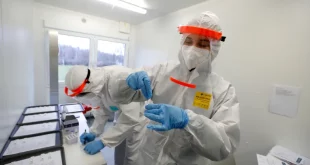Health authorities have issued a public advisory urging people to avoid reusing plastic bottles for storing drinking water.
The Food Safety Unit of the Ministry of Health highlighted that some individuals are reusing these plastic bottles for water storage.
However, the unit warned that chemicals from the materials used in the production of these bottles can leach into the water upon repeated use.
Research has indicated that some of these chemicals may be carcinogenic, posing significant health risks.
In light of these findings, the public is advised against reusing plastic bottles originally intended for single use.
Officials from institutions involved in packaging drinking water have been instructed to follow proper safety guidelines when reusing large plastic bottles.
This is particularly important for the 19-liter plastic bottles commonly used in dry zone areas for water storage.
The Food Safety Unit emphasized that improper reuse of these bottles can have adverse health effects, and it is crucial to adhere to safety protocols to ensure public health.
Reusing plastic water bottles can pose several health and environmental risks. Here are some key reasons why it’s generally not recommended:
1. Chemical Leaching
- Most plastic bottles are made from polyethylene terephthalate (PET), which can break down over time, especially when exposed to heat, sunlight, or repeated washing.
- When the plastic degrades, chemicals like Bisphenol A (BPA) and phthalates can leach into the water, potentially leading to health issues, including hormonal disruptions.
2. Bacterial Growth
- Reused plastic bottles can become breeding grounds for bacteria due to the moist environment inside the bottle.
- Even with regular washing, it can be difficult to completely remove bacteria from all parts of the bottle, especially the crevices and bottle cap areas.
3. Structural Degradation
- Plastic bottles are designed for single-use and often lack the durability to withstand repeated use.
- Over time, the plastic weakens, developing cracks and scratches that make it easier for bacteria to grow and chemicals to leach into the water.
4. Microplastic Contamination
- Studies have shown that the breakdown of plastic bottles can lead to the release of microplastics into the water, which can be ingested.
- Consuming microplastics over time may have long-term health effects that are still being researched.
5. Environmental Impact
- Although reusing seems environmentally friendly, it’s better to use a more sustainable option like a reusable water bottle made from stainless steel, glass, or BPA-free plastic.
- Proper disposal and recycling of single-use plastic bottles are crucial to reducing plastic pollution in oceans and landfills.
Alternatives
- Consider using reusable water bottles made from safer materials like stainless steel or BPA-free plastic.
- These options are more durable, easier to clean, and do not pose the same health risks as reused single-use plastic bottles.
Using reusable bottles not only benefits your health but also helps reduce plastic waste and its impact on the environment.
Post Disclaimer | Support Us
Support Us
The sailanmuslim.com web site entirely supported by individual donors and well wishers. If you regularly visit this site and wish to show your appreciation, or if you wish to see further development of sailanmuslim.com, please donate us
IMPORTANT : All content hosted on sailanmuslim.com is solely for non-commercial purposes and with the permission of original copyright holders. Any other use of the hosted content, such as for financial gain, requires express approval from the copyright owners.
 Sri lanka Muslims Web Portal Sri Lanka Muslims News Center
Sri lanka Muslims Web Portal Sri Lanka Muslims News Center
 Donate
Donate


